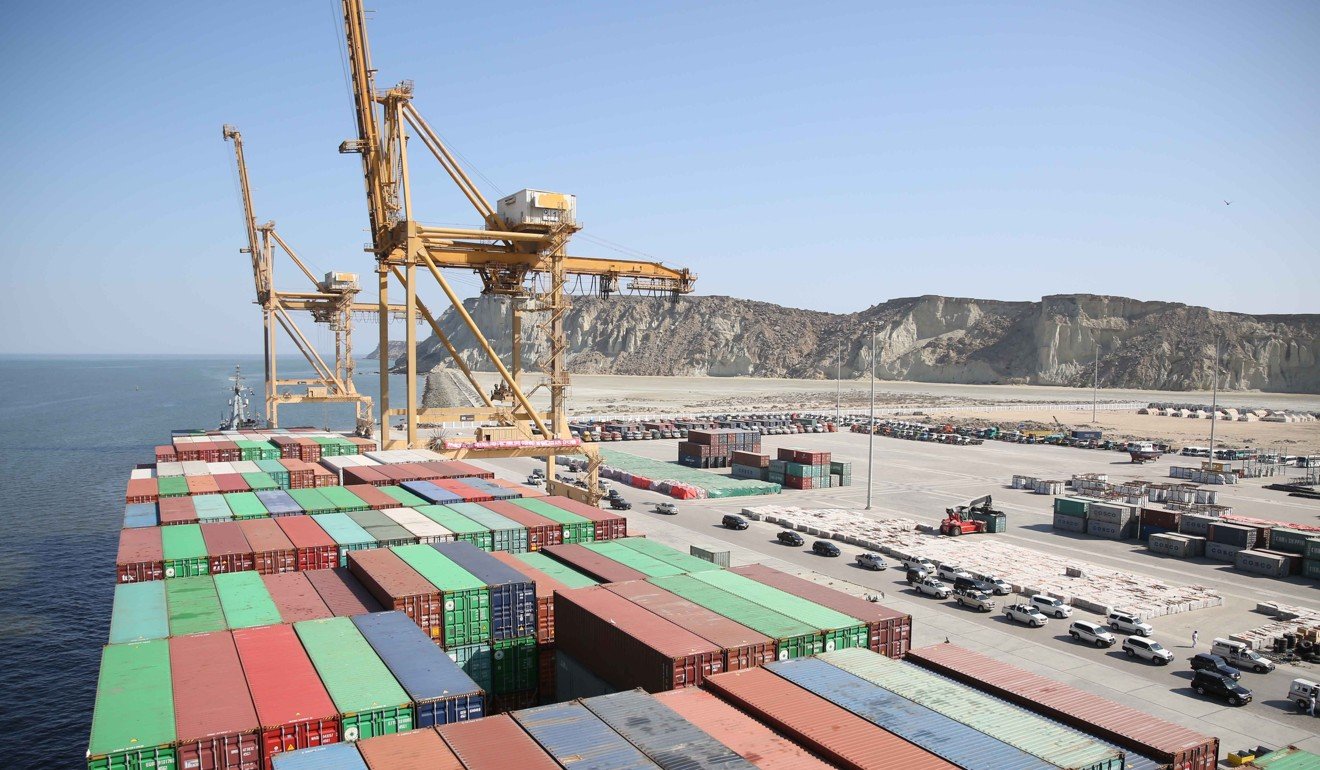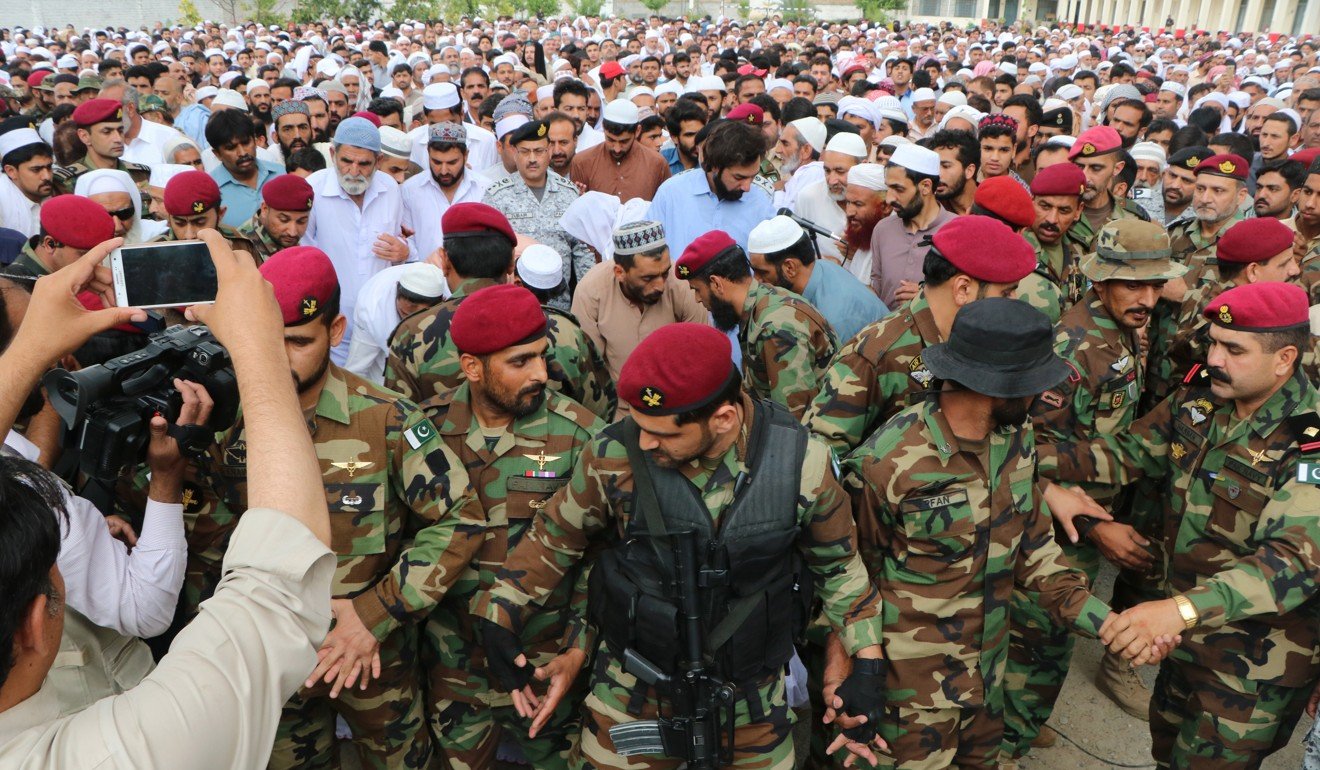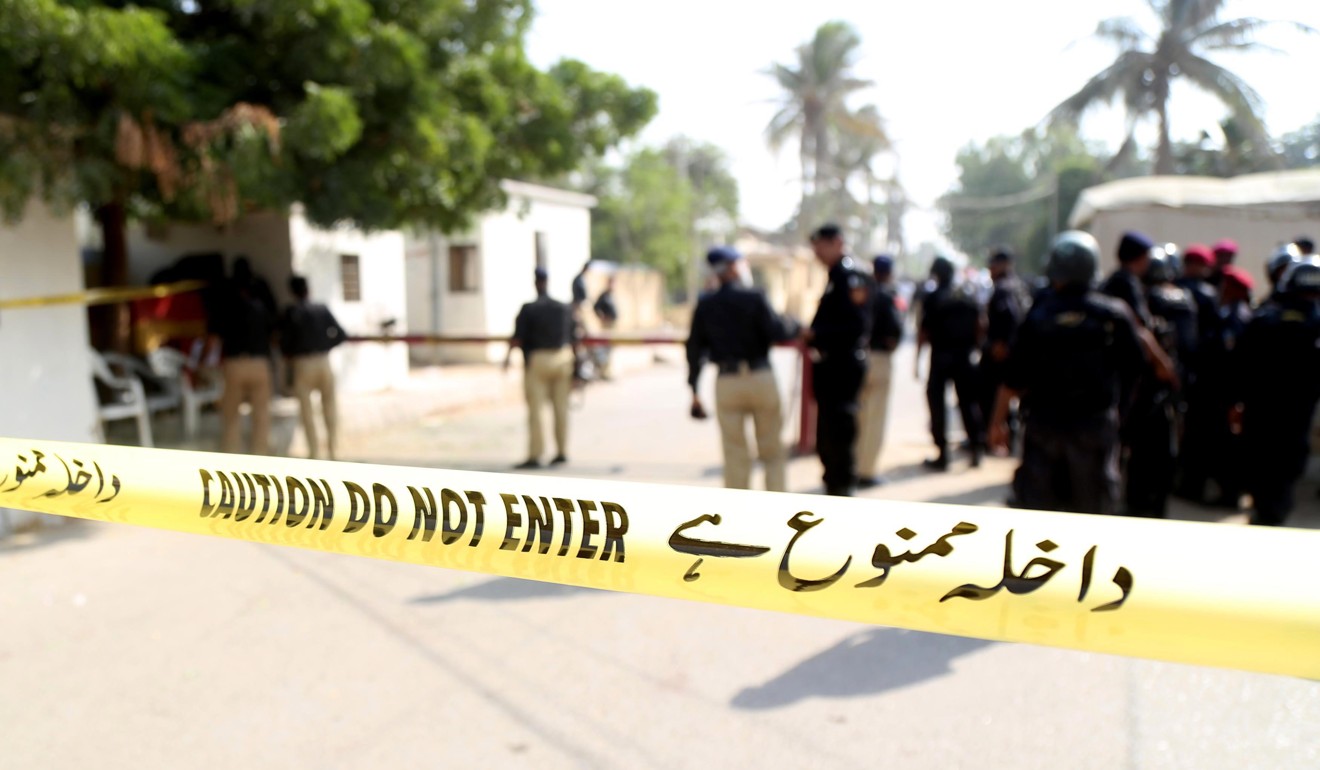
‘The Chinese are our No 1 enemy’: why Beijing’s US$62 billion investment in Pakistan is the top target for Balochistan separatists
- Government officials say Islamabad has set aside US$9.1 million for security in the China-Pakistan Economic Corridor
- But the Balochistan Liberation Army has vowed to continue its attacks on Chinese projects and nationals, as they fear being turned into a minority in their own province

As the three gunmen forced their way into Pakistan’s Zaver Pearl Continental Hotel on May 12, the management of the only five-star hotel in the city of Gwadar, Balochistan province – where China is building a multibillion-dollar port – had a prompt response.
They contacted Pakistan’s Special Security Division (SSD), which dispatched a team of commandos within seven minutes of the call. The team killed the assailants, but one member, from the Pakistani Navy, and four hotel employees lost their lives.
Since the China-Pakistan Economic Corridor (CPEC) became operational in 2016-17, Chinese interests and Chinese nationals have been targeted by the Balochistan Liberation Army (BLA), which has been fighting a long-running insurgency.
Under the CPEC, which is part of Beijing’s ambitious Belt and Road Initiative to boost global trade, China is providing US$62 billion for the development of port facilities in Gwadar as well as energy generation and transport infrastructure projects.
The CPEC will connect the deep-sea port of Gwadar to the city of Kashgar in China’s Xinjiang province, and is expected to provide a boost for financially struggling Pakistan – but the Baloch insurgents fear the wave of investment will turn them into a minority in their own province.

Since 2016, Pakistan has allocated 1.3 billion rupees (US$9.1 million) for CPEC security, on top of the efforts of the Balochistan provincial government, and created the 15,000-man SSD. It cost 50 million rupees (US$351,000) to set up the division, according to a government official.
It is important for us to make foolproof security measures for our Chinese friends
Separately, Pakistani Minister for Planning and Development Makhdoom Khusro Bakhtiar said the SSD, comprising nine battalions of the Pakistan Army and six wings of civil armed forces, was providing security to Chinese-backed CPEC projects in the northern territory of Gilgit-Baltistan, Sindh province, Gwadar, and the Balochi capital of Quetta.
“It is important for us to make foolproof security measures for our Chinese friends,” the minister told the South China Morning Post. “In the wake of the recent attacks, we are taking extra measures to ensure their security.”
But this has done little to foil the BLA. On May 11, a tweet from what claimed to be the BLA’s official Twitter account said: “Expect more attacks in the future.”
The BLA also believes China – in their efforts to protect their investment in the CPEC – is helping the Pakistani military quell their struggle for an independent Baluchistan.

“Chinese investment in Baluchistan has gave immense strength to the Pakistan army and government,” a BLA commander told a Post source. “[The Chinese] have made it difficult for us to materialise our dream [of an independent Baluchistan]. Our first target is to force them to go back. Their departure will ultimately weaken the Pakistani army, thus paving the way for us to achieve our target.”
Our first target is to force [the Chinese] to go back
The commander said discouraging further Chinese presence in Pakistan was their “ultimate goal”: “Now the Chinese are our No 1 enemy. We will target them throughout Pakistan.”
Renowned Pakistani analyst and economist Kaiser Bengali said there have already been signs of this change in approach. “Recent attacks on Chinese show the insurgents have gained more strength. They seem to attack any project where Chinese are spotted.”
Last August, a suicide bomber attacked a bus carrying Chinese engineers in Balochistan’s Chaghi district, injuring three engineers and three security personnel. The BLA claimed responsibility for the attacks, saying the Chinese were specifically targeted because they were “extracting gold from the region”.
In November last year, three terrorists affiliated with the BLA targeted the Chinese consulate in Karachi, killing four people. Security forces killed the gunmen before they could enter the consulate.
Statements issued by the governments of Pakistan and China in the aftermath of the Gwadar hotel attack indicate relations between the two countries are still strong.

“The heroic action of the Pakistani army and law-enforcement agencies is highly appreciated,” said Lijian Zhao, the Chinese embassy’s deputy chief of mission, in a statement condemning the hotel attack. “We express condolences to the families of the security guard who sacrificed his life and the two security men who were injured.”
However, there is a growing sentiment among Gwadar locals that the CPEC is depriving them of their livelihoods – particularly fishing.
“We are denied access to sea for days as [the authorities] believe we are a security risk,” said Nazir Jan, a fisherman. “We were confined to our houses during the Gwadar Expo in the free-trade zone held in January 2018. Our boats were beached for three days during a critical season of calm waters.”
In February 2018, The Financial Times reported that China was in negotiations with Baloch insurgents in a bid to save its investment in the CPEC. At the time, Chinese officials strongly denied the content of the report.
However, a source from Pakistan’s Intelligence Bureau tells the Post that last year “China contacted Baloch insurgents apparently in a bid to convince them to stop attacking Chinese interests in Pakistan”.
An official from the Chinese mission in Islamabad has rubbished these claims, saying that China “didn’t contact any insurgent group”.